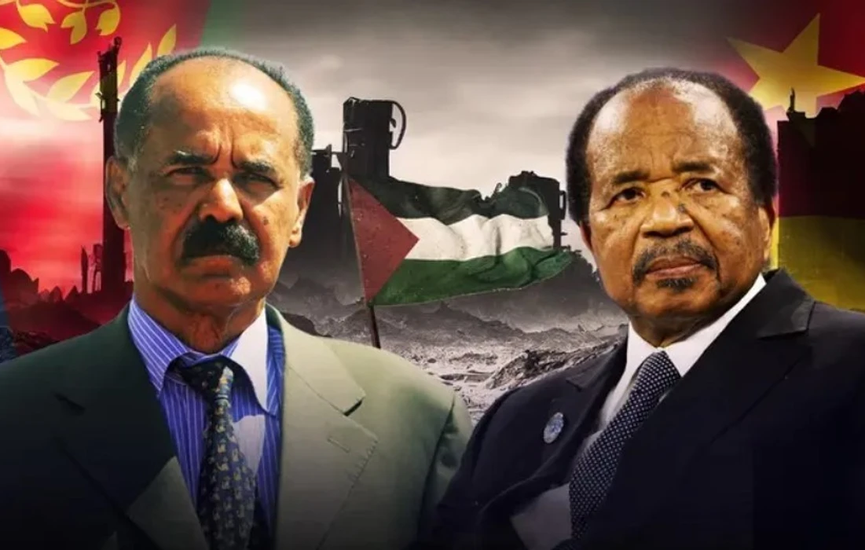Eritrea and Cameroon stand apart from the rest of Africa in their refusal to formally recognize the State of Palestine, a stance shaped less by ideology and more by strategic diplomacy. While the majority of African nations support Palestinian statehood as part of a broader legacy of anti-colonial solidarity and alignment with global South movements, these two countries have chosen a different path, one that prioritizes bilateral relationships with Israel over continental consensus. Their decisions reflect calculated national interests rooted in security, diplomacy, and regime stability.
Cameroon’s position traces back to 1986, when President Paul Biya restored diplomatic ties with Israel, diverging from the African bloc that had severed relations following the 1973 Yom Kippur War. Since then, Israel has become a key partner in Cameroon’s internal security architecture, notably through its support for the elite Rapid Intervention Battalion (BIR). This unit has played a central role in countering Boko Haram insurgents and separatist movements in the country’s restive regions. Analysts suggest that Cameroon’s refusal to recognize Palestine is a pragmatic move, designed to preserve access to Israeli military technology, intelligence cooperation, and diplomatic backing in international forums where Cameroon often faces scrutiny over human rights and governance.
Eritrea’s stance is similarly rooted in strategic calculus. Under President Isaias Afwerki, the country has cultivated a discreet but enduring relationship with Israel, marked by intelligence sharing and diplomatic support. In a region fraught with geopolitical tension and isolation, Eritrea views its ties with Israel as a lifeline, an avenue to bolster its international relevance and safeguard regime survival. The government’s decision not to recognize Palestine is seen by observers as a reflection of its broader foreign policy approach: one that values transactional alliances over ideological commitments.
In both cases, the refusal to recognize Palestine is not necessarily a rejection of Palestinian aspirations, but rather a reflection of each country’s prioritization of regime security and strategic partnerships. Eritrea and Cameroon are, in effect, “voting with their vulnerabilities,” aligning with Israel to secure resources, legitimacy, and protection in a volatile international landscape. Their positions underscore the complex interplay between domestic politics and foreign policy, revealing how national interests can override regional solidarity, even on issues as symbolically potent as Palestinian statehood.
